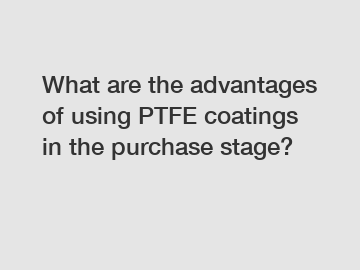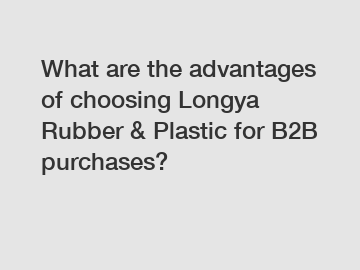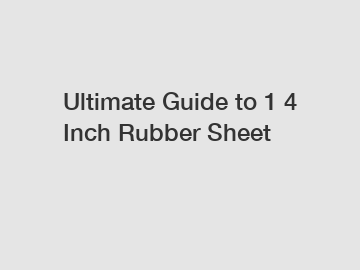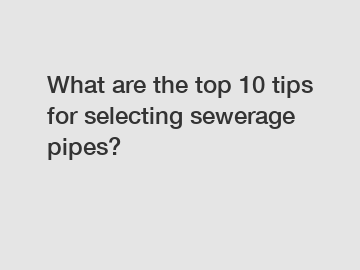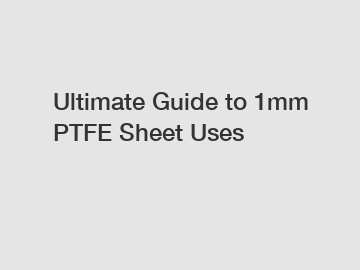How to go plastic-free on a budget
How to go plastic-free on a budget
-
Use an eco-friendly shampoo bar
To go zero waste on a budget, consider getting shampoo bars instead of bottles of shampoo.
Shampoo bars are often free from plastic packaging, last longer and they're easy to use. Win-win-win.
It's worth trying one from an independent seller on Etsy. Or, if you'd rather stick with a big-brand name, you could try Lush. They have loads to choose from so you can get one that matches your hair type.
You could also have a look at other plastic-free online shops such as Plastic Freedom and Plastics Free.
-
Replace face wipes with a face cloth
Face wipes might be convenient. But sadly, they're expensive and really bad for the environment.
They're single-use and come in plastic packaging. Plus, it's generally thought that they're not as effective at cleaning your skin as regular face wash and water.
You can buy a couple of washable cloths for your face and another two or three for your body. That way, you'll still have fresh, clean ones while the other ones are in the wash.
-
Buy sustainable bars of soap
It might seem a tad old-fashioned to use a bar of soap instead of a pump but, it'll last much longer. And it gets a wash after each use (unlike a plastic soap dispenser).
Just make sure to find a bar that doesn't come wrapped in plastic. Again, you could look on sites like Etsy for independent soap sellers who use sustainable packaging.
-
Use a wooden toothbrush
Wooden toothbrushes aren't to everyone's tastes (we mean literally, it can feel a bit like licking a tree). But they're much more eco-friendly than regular plastic toothbrushes.
Brushes from Save Some Green have handles made from (panda-friendly, sustainable) bamboo. On top of that, the bristles are BPA-free** biodegradable nylon 4 (meaning they are plastic, but they will degrade), and they're also infused with bamboo.
At the time of writing, they're around £2.50 each. You can get them a bit cheaper if you buy them in bulk.
-
Use deodorant bars
Like the other plastic-free toiletry bars on this list, you can get deodorant bars from Etsy and Lush.
Although they might take a little while to get used to, they're more environmentally friendly than using a plastic roll-on or spray can. They last quite a while too.
Keeping your bar wrapped in paper will help to preserve its scent.
-
Buy plastic-free makeup
It can be quite difficult to go plastic-free with makeup when all the major cosmetics brands use plastic, but there are alternatives out there. For example, Glow Organic has a large range of plastic-free make-up.
You might not get quite the same level of quality that you would with bigger brands, but you'll get that extra glow knowing that you're saving the planet.
We've got loads of tips on how to save money and recycle your makeup . This includes the Back to Mac scheme, which rewards you with a free lipstick for returning your packaging.
-
Try a reusable menstrual cup
If you're looking for a way to cut plastic out of your periods and save money, you could try out a menstrual cup or reusable sanitary pads (if they work for you).
We recommend sticking with the leading menstrual cup brands like Mooncup or Lunette so that you know they use safe materials. Lunette also offers a 15% student discount.
We've rounded up the cheapest sanitary products in our full guide. This includes reusable options.
-
Get paper-wrapped toilet roll
With Who Gives A Crap, you can get loo roll that's much more attractive while also being super eco-friendly.
If you buy directly from their website, you have to buy in bulk. For example, you can get 48 rolls for around £45. It might not be as cheap as you're used to, but you can get £5 off via this link when you make your first order.
Plus, to save more money while still cutting down on plastic, you could mix it up with your usual loo roll and buy a box of paper-wrapped rolls every now and then.
Once you're finished with it, why not sell your loo roll tubes to make back some cash? Yep, it really can be done.
-
Shop at local independent stores
For food without plastic packaging, it's much better to shop at places like butchers, delis, grocers and markets, rather than mainstream supermarkets.
For fruit and veg, in particular, you should be able to find them for pretty good prices on stalls in a local market. Plus, they'll be free from plastic.
-
Check food packaging labels carefully
If you ever need to buy something that has plastic packaging, you can cut down on plastic wastage by making sure the packaging is recyclable before getting it.
You'll be surprised to find some food products aren't recyclable at all, while others are that you wouldn't expect.
The company is the world’s best Recycled Plastic Products supplier. We are your one-stop shop for all needs. Our staff are highly-specialized and will help you find the product you need.
Explore more:
4 Tips to Select Recycled Polypropylene Pellets
Which is the best nylon 6 sheet for cost-effective purchases in B2B marketing?
Tips for finding the best deals on plastic road plates?
What are the advantages of FKM?
What is HDPE pipe prices?
What is HDPE pipe prices?
The Ultimate Guide to Teflon Joint SealingFor example, things like cling film and many food and drink pouches can't be recycled. On the other hand, breakfast cereal liners and frozen food bags can.
-
Buy loose fruit and veg, not pre-packaged
As well as helping you cut out plastic, buying loose fruit and vegetables will help you save money (and prevent food waste) in the long run.
There's also no need to put your veg in the little plastic bags they have in shops. You'd need to wash them before eating them anyway, so it's really not worth the extra packaging.
-
Buy frozen meat and fish
Most fresh and raw meat comes wrapped in plastic, but the freezer aisle is your friend when you're aiming to reduce plastic.
Frozen fish fillets and chicken steaks often come in cardboard boxes. Annoyingly, it tends to be breaded foods that come completely plastic-free (which aren't the healthiest options).
-
Replace plastic-packaged food with tins
You can get so much food in the tin aisle. Beans, tomatoes, sweetcorn, tuna, soup... Even bacon brunch, whatever that is.
Canned foods have recyclable packaging and they tend to be very cheap at supermarkets.
Better yet, you can save even more money by buying them past their best-before date (but not their use-by date) from Approved Food.
-
Find shops that sell your favourite foods without plastic
If your local food shop only has your favourite foods in plastic packaging, don't be disheartened. You might be able to find similar products in other shops without plastic.
For example, do you love an apple pie, but can never find one that is plastic-free? Try Sainsbury's.
They sell apple pies that come in a cardboard box and foil cartons. Pair that with a tin of custard and you have a dream dessert.
When food shopping, always try to go for the cheapest brand available. The supermarket downshift can save you over £500 a year.
-
Use your own Tupperware
Local butchers, grocers and delis (and some supermarkets) will likely let you take along your own Tupperware to transport food in, cutting out the need for extra plastic packaging.
Tupperware is useful when you need an airtight container for food, but you want to avoid single-use plastic.
-
Find a local milk delivery service
As more people try to use less plastic, milk delivery services are becoming increasingly popular again.
They allow you to get your milk delivered in glass bottles to your home. You then leave the empty bottles on your doorstep to be collected and reused ' completely zero-waste. Some services even offer orange juice too.
Have a quick look on Google to find milk delivery services in your area.
-
Buy cereal in plastic-free packaging
It can be difficult to find breakfast options that aren't packaged in plastic but if you do some extra digging, you'll find some.
As an example, Flahavan's Organic Jumbo Oats come in a paper bag which is 100% recyclable. At the time of writing, you can get 1kg of oats for around £2.70 from Tesco.com.
-
Get a reusable shopping bag
It sounds like an obvious one, but you'd be surprised how many people don't do this already. You can buy a reusable bag that folds up really small for a few quid, and it'll save you paying 10p (or more) for a plastic bag every time.
For a no-plastic shopping bag, have a look at Etsy where you can find plenty of reusable fabric ones from independent sellers.
-
Avoid sweets and chocolate
Things like sweets and chocolate usually come wrapped in plastic, so fruit and veggies are a great alternative.
Apples, bananas and oranges are brilliant study snacks. You could even try making your own vegetable crisps by roasting some peelings.
Or, when you do fancy a sweet treat, try to find chocolate wrapped in recyclable paper or card. Seed & Bean makes ethical chocolate, with 100% compostable packaging. They use paper and a material called Natureflex' for the inner foil, both of which you can recycle.
Another way to get your hands on plastic-free fruit, vegetables and herbs is by growing your own in your kitchen or garden
-
Cut out chewing gum
Did you know chewing gum is actually made from plastic?
This means that once you ditch it, it won't degrade. Hence why you see so many lining pavements. However, there are some brands, like Simply Gum, which have developed a biodegradable and plastic-free alternative.
-
Buy a stainless steel water bottle
Of course, plastic reusable water bottles are also an option here. But the plastic can go a bit funny after a few months and make your water taste weird. We'd recommend stainless steel bottles for longevity.
Plus, you'll save money in the long run by cutting out those random bottles of water you buy when you're out and about. Some places like Pret A Manger offer free water refills in-store when you have a reusable bottle.
Equally, it's a great idea to get a reusable cup or flask for hot drinks, too. You can even get discounted hot drinks in some locations when you use a reusable cup.
-
Use laundry powder or detergent instead of capsules
To avoid plastic, you should avoid using the capsules that come sealed in plastic. Instead, opt for a good old-fashioned box of laundry powder (it's the cheapest option anyway).
It's difficult to say whether bio or non-bio laundry powder is better for the environment. Bio powders contain enzymes that can irritate sensitive skin. But, when using non-bio, you'll usually have to wash your clothes at a higher temperature, which uses more energy.
If you would like to keep using capsules, Smol send them in plastic-free boxes. And you can get your first nine washes for free when you first try them. You just have to pay £1 for postage.
-
Clean with bicarbonate of soda
Bicarbonate of soda makes a great alternative to traditional cleaning sprays which come in plastic bottles.
Have a look online for bicarbonate of soda in plastic-free packaging.
For more plastic-free options, you could also try these eco-friendly home and cleaning products. When it comes to reducing plastic waste at home, this is a big help.
-
Use biodegradable bin bags
Bin bags may seem like a type of single-use plastic that's impossible to avoid. But, you can actually get biodegradable bags that are eco-friendly, making your waste a little less wasteful.
Be careful though ' some sites sell biodegradable and degradable bin bags. We'd suggest avoiding degradable bin bags.
Unlike biodegradable bags which are broken down by living organisms, degradable ones contain chemicals that cause them to break down. Therefore, they're not as environmentally friendly.
Unfortunately, though, biodegradable bin bags will likely be pretty pricey compared to your usual bags. You might want to consider getting them now and then as a way to reduce your plastic use.
For an idea of prices, Greener Walker sells 30 bin bags that are biodegradable and compostable for around £11. They're able to hold 30 litres of waste each.
For more Post-Consumer Plastic Reuseinformation, please contact us. We will provide professional answers.
By there could be more plastic in our oceans than fish. Do you know how much plastic you throw away? Here's how to reduce your plastic use while saving yourself some cash.
If you want to learn more, please visit our website EcoPlas.
Single-use plastic is just about everywhere you look. Whether you're buying a meal deal, some loo roll or a toothbrush, you're likely buying plastic that you'll end up chucking in the bin.
The big sticking point is that plastic is often the cheapest and most convenient option for products and packaging. Opting for the eco-friendly choice often means spending more money... Or does it?
Plastic-free living is actually not quite as difficult as you might initially think. We've listed the best ways to cut down on plastic while also saving money.
As well as using less plastic, there are loads of other great ways to reduce your carbon footprint
Almost everything we buy contains plastic in some form. The big problem is that this plastic never really goes away.
Here are some key stats* that show how serious the plastic pollution problem is:
You might be wondering how one person going plastic-free is going to make any difference in the face of such a huge problem. And you would have a point.
But at the risk of sounding cliché, big societal changes start with individual people making small alterations. Plus, if you can convince your friends and family to join you, then you're no longer just one person. Never underestimate the impact of your individual actions.
Read on to find out the top ways to cut out plastic and massively reduce your waste.
How green is your university? Check out the university sustainability league table to find out.
Here are the best and cheapest ways to go plastic-free:
Which custom gaskets near me offer the best price for B2B purchase?
Unveiling the Affordable 8 Inch HDPE Pipe Price
Pioneering the Future: 5mm PTFE Sheets – Which Industries Could Benefit the Most?
Ultimate Low-Priced Polyethylene Guide: Beat Wear and Tear!
What is best to put under stall mats?
What are the different types of rubber bellows?
Ultimate Guide: Unveiling 2 Inch HDPE Pipe Prices - Discover the Best Deals!




